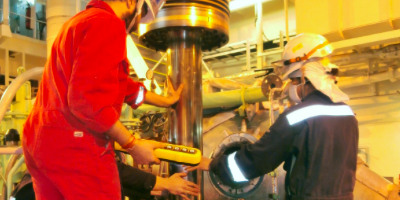By Mark Dickinson, lead negotiation for the seafarers
As negotiations to set the global minimum wage for seafarers drew to a conclusion, the shipowners made a shocking suggestion. This is the moment, they announced, to disregard the ILO mechanism and cut the real value of the ILO minimum wage, currently set at $21.36 a day.
At almost the same time, AP Moller-Maersk, the container shipping giant that carries approximately one fifth of global exports issued a dramatic update of its own. The company predicted that its earnings this year would be $9 – $11 billion, nearly double previous estimates. Its shares climbed by three percent on the news that day.
Maersk is considered an industry bellwether. Its record profits are indicative of economic good times currently enjoyed by the entire global logistics industry, as the world’s economy experiences a faster-than-expected recovery. All indices show show shipping prices at record highs. Orders for new ships have broken decades-old records.
Fortunately for the 1.6 million seafarers around the globe, their trades union representatives pushed back against the outrageous suggestion of a real terms pay cut. Hard as we tried, however, we were not able to secure the rise so richly deserved by those who work at sea. It is only the second time in the 75-year history that these talks have not ended in resolution.
The shipowners’ conduct is particularly distressing after the year that industry has experienced. The pandemic has disrupted nearly everyone’s lives, of course, but for seafarers the consequences have been particularly dramatic.
Some 400,000 were trapped on their ships with no way to return home at the end of their tours of duty. An equal number were stuck on land without means to reach their ships – many spent months without financial support.
As the crisis escalated, the shipping industry did what we do best – we came together to deal with an emergency. Unions and employers united to involve the United Nations in resolving the crew-change crises. We were together in the creation of the Neptune Declaration calling for seafarers to be treated as key workers. We spoke with one voice as we pressured governments to intervene.
ICS Secretary General Guy Platten described this well in March: “We moved quickly to get people talking and setting up regular weekly, or twice weekly meetings, with members, social and welfare partners such as the International Transport Federation (representing seafarers’ unions), the International Maritime Organisation and International Labour Organisation as well as with other UN agencies and the EU. Getting everyone connected and talking was a big win.”
Platten also recognised the sacrifices made by seafarers: “Crew are working hard around the globe to keep global trade moving, with 200,000 seafarers currently being impacted by overly harsh restrictions which stop them boarding or disembarking ships.”
Tragically, that trust and understanding, developed over an unprecedented year has been thrown away – a valuable asset trashed on the altar of ever greater profits.
We all want our industry to be successful, to be responsive to changing consumer demands, and to meet rightly stringent carbon reduction goals. All are only possible with a workforce that feels sufficiently valued that it is willing to go the extra mile to achieve change. That is why, as soon as the shipowners are willing to take these negotiations seriously and respect the ILO mechanism, I am willing to lead the unions back to the table.
In the meantime, we can only reflect on opportunity lost and goodwill squandered. The sooner we can resolve this situation sensibly, however, the better it will be for everyone in the industry, and all of us who rely on global supply chains to fill our shops.


